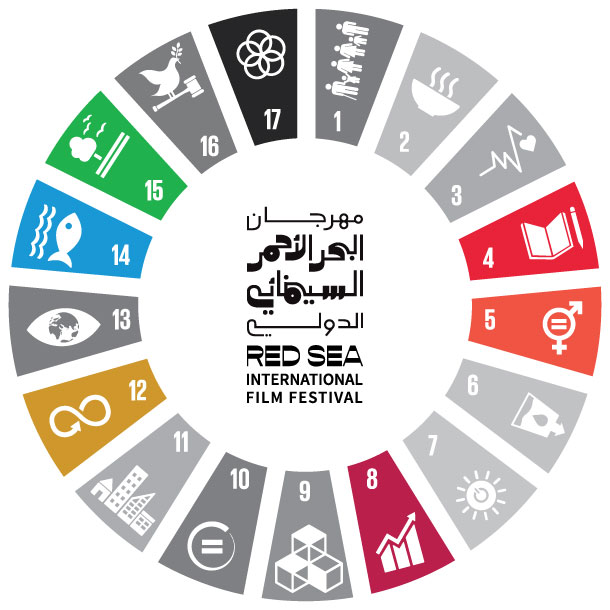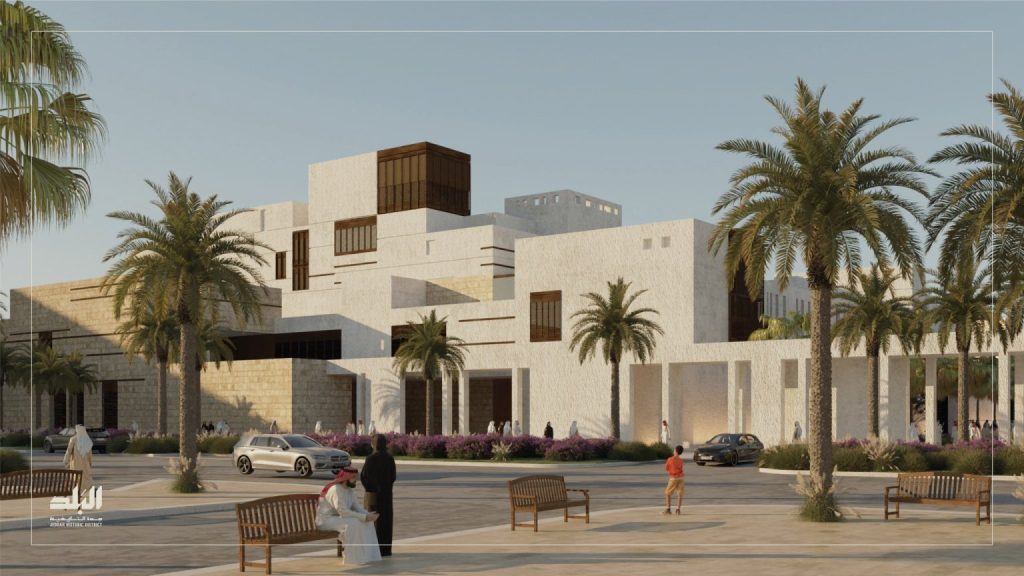The fourth edition of the Red Sea International Film Festival (RSIFF) in Jeddah, Saudi Arabia, made a significant move from its previous venue at the Ritz-Carlton to the newly constructed Cultural Square in the historic Al-Balad district.
Launched by the Ministry of Culture in 2019, the Red Sea International Film Festival is a key part of Saudi Arabia’s broader Vision 2030 initiative, which aims to diversify the economy and reduce dependence on oil.
With five cinemas, an auditorium, and dedicated spaces for industry events, the festival highlights the Kingdom’s commitment to nurturing a thriving film culture.
Saudi Arabia’s Evolving Film Industry


The lifting of Saudi Arabia’s 35-year ban on cinemas in 2018 was a pivotal moment for the Kingdom’s entertainment sector. Aligned with Vision 2030—which aims to diversify the economy and promote moderate cultural policies—this decision has fueled the rapid growth of the film industry.
Investments in world-class infrastructure, such as the development of studio complexes in Neom and AlUla and the recent launch of a $100 million film fund, underscore Saudi Arabia’s strategic commitment to building a comprehensive cinematic ecosystem.
With approximately 803 cinema screens nationwide, Saudi Arabia now leads the Middle East in theatrical revenues, contributing 42% to the region’s total. Despite a plateau in box office growth over the past two years, RSIFF has emerged as a critical platform for showcasing the Kingdom’s ambitions as a global film hub.
A Star-Studded Event


RSIFF has attracted significant international attention with an impressive lineup of film industry icons, including Johnny Depp, Michael Mann, Spike Lee, Eva Longoria, Viola Davis, and Andrew Garfield. Their participation not only adds prestige but also emphasizes Saudi Arabia’s growing role in global cinema.
The Kingdom’s appeal as a filming destination has been further bolstered by a 40% tax credit for international productions. This incentive, combined with state-of-the-art facilities and robust government support, positions Saudi Arabia as an attractive hub for film collaborations.
Celebrating Inclusivity and Innovation


This year, RSIFF will feature 121 films, half of which are world or international premieres. Significantly, seven out of the 16 films in the competition are directed by women, highlighting the festival’s dedication to inclusivity and gender equity.
The opening film, The Tale of Daye’s Family, by Egyptian director Karim Shenawi, underscores regional collaboration and themes of perseverance and ambition.
The 2024 edition also marks an expansion in scope, with the Red Sea Souk showcasing projects from Asia for the first time. Filmmakers from Afghanistan, Pakistan, China, and the Philippines will participate in masterclasses, discussions, and the Talents program, fostering cultural exchange and collaborative opportunities.
Sustainability at the Core


Aligning with the United Nations’ Sustainable Development Goals (SDGs), RSIFF has taken steps to prioritize environmental responsibility. Initiatives include waste recycling, minimizing paper use through digital-first operations, and promoting sustainable travel options for attendees.
These measures are designed to position RSIFF as an environmentally conscious cultural event.
The festival also adopts a Circular Carbon Economy approach, recycling waste to mitigate environmental impact. Attendees are encouraged to use greener travel methods, such as carpooling and carbon offset programs, reinforcing RSIFF’s commitment to sustainability.
Driving Economic Growth and Job Creation


RSIFF is more than just a cinematic event; it serves as a catalyst for economic growth and job creation. The festival’s activities span event management, hospitality, and transportation, creating temporary job opportunities that support the local workforce. The Red Sea Souk’s expansion, featuring a record 74 exhibition stands, has significantly boosted participation and employment.
Since 2021, the Red Sea Foundation has funded over 250 projects with a $15 million budget, supporting films such as Four Daughters (Tunisia), Goodbye Julia (Sudan), and Inshallah A Boy (Jordan), all of which were shortlisted for the 2024 Oscars.
Programs like Red Sea Labs, in partnership with TorinoFilmLab, and SeriesLab, in collaboration with Film Independent, are fostering innovative storytelling across the region.
Cultural Investment and International Exposure
RSIFF represents Saudi Arabia’s commitment to cultural investment as part of Vision 2030. The festival’s Project Market, showcasing 38 film and TV projects at various development stages, has gained global attention and attracted investors.
This year’s diverse offerings include works by Moroccan director Asmaa El-Msaani and Nigerian filmmaker CJ ‘Fiery’ Obasi. Notably, 28% of projects hail from Asia, reinforcing RSIFF’s role as a bridge between Eastern and Western cinema.
The international exposure provided by RSIFF has helped solidify Saudi Arabia’s place on the global cultural stage, fostering future investments and collaborations.
Strategic initiatives, including the relocation of the Red Sea Souk to the historic Al-Balad district, have enhanced accessibility and facilitated smoother networking for industry professionals, driving international interest.
Equitable Access and Education
RSIFF promotes equitable access to opportunities and education, empowering young talent and underrepresented communities in line with SDGs 4, 5, and 8.
The festival offers knowledge-sharing initiatives and access to advanced filmmaking technologies, supporting aspiring filmmakers. The leadership, highlighted by a female chairperson, underscores the commitment to gender equity and fostering an inclusive space for women in film.
RSIFF is a significant driver of economic and cultural growth in Saudi Arabia. By boosting tourism, creating jobs, investing in cultural initiatives, and enhancing international exposure, the festival is contributing to the country’s GDP.
As Saudi Arabia continues to diversify its economy through Vision 2030, events like RSIFF will play an increasingly important role in shaping the nation’s economic and cultural landscape.
Through sustainability, inclusivity, and innovation, RSIFF is paving the way for a more connected and vibrant future for the film industry in the Middle East and beyond.
WE ALSO SAID: Don’t Miss…Lights, Camera, Jeddah: Spotlight on the Speakers of the Red Sea International Film Festival 2024



